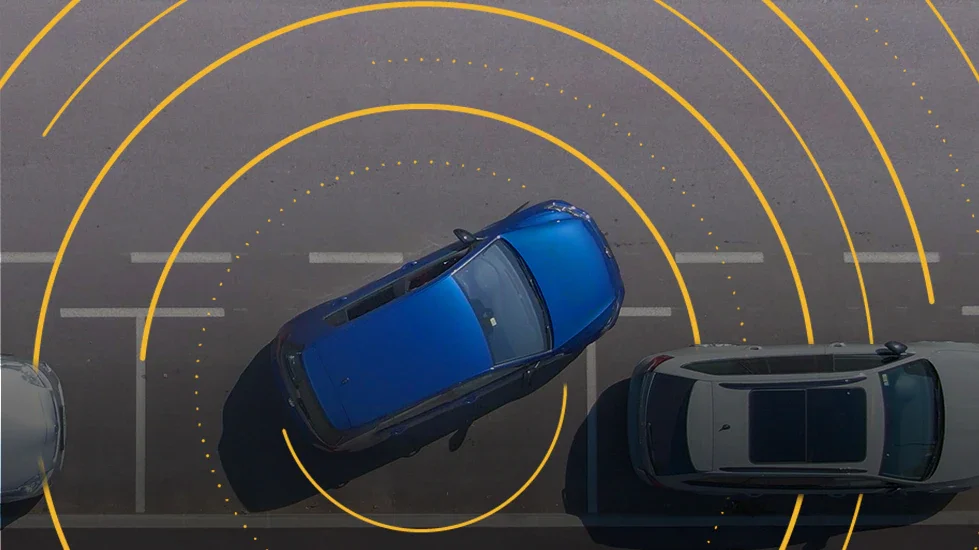
Baidu, a leading artificial intelligence and internet services provider in China, has been involved in the research and development of autonomous driving technology since 2013. In 2018, Baidu started looking for a joint design and manufacturing partner for the Apollo Computing Unit (ACU), its first commercial autonomous driving compute platform.

That’s where Baidu turned to Flex, a global diverse manufacturing partner with the ability to address unique and complex customer needs to advance next-generation mobility. Key enablers include deep collaborative engagement models across the ecosystem and decades of proven cross-industry expertise. The partnership between Baidu and Flex culminated in Baidu’s Apollo program being officially announced in 2020 and entering production later that year.
Baidu has taken a careful approach with fully autonomous driving features, prioritizing automotive-grade safety to ensure that these features are released in a controlled manner. Automated Valet Parking (AVP) is one such feature enabled by the ACU. It allows a driver to be dropped off at a predefined zone and leave the vehicle to park itself using autonomous technologies. When the driver wants the vehicle back, it can be “summoned,” and the vehicle will self-navigate back to the drop-off zone.
AVP is classified as a Level-4 autonomous parking application as defined by SAE International, a global standards development and professional association. It is a key steppingstone to full autonomy and true next generation mobility. Importantly, Baidu’s system is entirely inside-out, meaning all processes and information are developed and delivered from the car itself and there is no additional infrastructure needed — often a significant hurdle to technology adoption within the mobility space.
The challenges of building fully autonomous systems
Autonomous driving technologies have proven to be a great challenge for decades as it requires a complex mix of:
- High-speed, parallel processing and distributed computing design capabilities that are usually used in the IT and telecoms industry
- Ruggedized, high-reliability design and validation capabilities that are crucial to the automotive industry
- Cohesive sensor and system integration to streamline huge amounts of data from various kinds of sensors including RADAR, LiDAR and ultrasonic sensors
Many automotive companies promise full autonomy, but only a select few companies have the expertise, experience, and capabilities required to create viable autonomous products and systems.
While most traditional automotive suppliers are limited to the technologies available in its specific applications, Flex is different. Customers benefit from extensive cross-industry design, development, supply chain, and manufacturing expertise. Flex continuously applies learnings from other industries into the mobility industry, creating tremendous value and accelerating innovation.
In Baidu and Flex’s ACU joint design efforts, Flex applied know-how and technical expertise from its enterprise compute business. Further, this collaboration combined extensive automotive knowledge to help design and build a compute unit that is complex enough to handle an L4 autonomous feature, yet rugged enough to operate safely, securely, and reliably in a harsh automotive driving environment.
Practical design and manufacturing strategy
To better serve customers in China, including Baidu, Flex implemented a “China for China” plan and rolled out the Assistant Development Manufacture (ADM) business model. The ADM model provides a flexible framework to support customers’ product development, from innovation through global deployment.
Through this strategy, Flex offered Baidu various design services including electrical, mechanical, thermal, software, and functional safety design, all tailored to customer requirements.
Along with design services, Flex also provided advanced manufacturing and supply chain services to Baidu with reliability in its product rollout. Flex manufactures the ACU at the Wuzhong, China site, adhering to strict safety and quality standards through every step of the process.
The ACU system design strictly complies to ISO 26262 functional safety requirements, and system manufacturing strictly follows the IATF 16949 quality management system, which helps ensure high product quality.
Level-4 autonomous parking realized
The ACU is the “brain” at the center of Baidu’s Advanced Driver Assistance Systems (ADAS). The ACU intelligently process data between the vehicle’s five cameras, 12 ultrasonic radars, intelligent parking planning, and decision-making enablers.
After 18 months of intense development and testing, Baidu and Flex together brought the first-generation ACU, enabled with the automated valet parking feature, from concept to mass production in 2021. Notably, this timeframe was achieved despite the persistent COVID-19 shutdowns that were taking place across the world in the middle of the ACU development phase.
The ACU’s first customer was a Chinese five-seater electric SUV, and it was one of the world’s first mass-produced Level-4 autonomous driving passenger vehicle applications. Since launch, the ACU is now in full mass production in multiple vehicle models.
Next generation mobility requires next generation collaboration. The success of Baidu and Flex’s work to design, manufacture, and scale the ACU demonstrates the deep collaboration needed to usher in the era of next-generation mobility and to harness its full potential.


